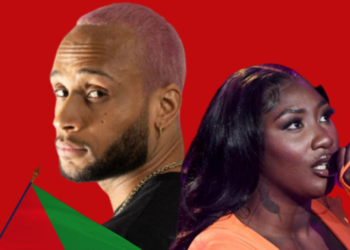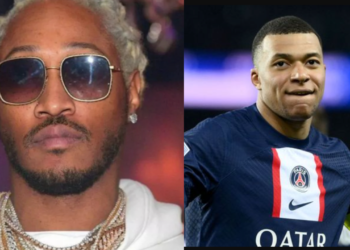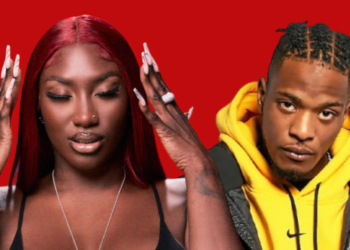ESPN’s undefeated “Black History Forever” favorites. Through black history, we all win.
In a world with many content options to choose from, the question of “relevance” is a key factor in determining whether viewers will tune in and continue to watch. For many, black history has been and still is misunderstood because black history is not just stories and rituals shared by black people for black people at certain times of the year. Black history will always be — it’s relevant to everyone.
Fortunately, certain programmers, networks, publishers, and advertisers understand and appreciate the value and importance of black history and culture. As the premier television network in sports, ESPN understands the real history, including black history, of being undefeated. That’s why ESPN+, through the Undefeated “Black History Always” initiative, brings multi-platform content that explores the intersection of sports, race and culture. The theme of celebrating everyday acts of bravery and sacrifice has been the engine of black progress and highlighting the unsung role of black women in the struggle for full equality, The Source supports and pays tribute to ESPN’s efforts to strengthen and strengthen the bonds of culture that unite us all . We also believe that black history is not limited to one month a year.
Check out our 5 reasons to watch: ESPN+’s undefeated “Black History Forever” series.
- One month is not enough.
Black history isn’t just important in February (coincidentally, the shortest month of the year). Every day counts. Black history is an important part of world history and American history, affecting almost every aspect of human society and cannot be erased. From the origin of man, the formation of kingdoms and civilizations, to the advancement of scientific innovation, heroic exploration, human suffrage, human protest, art, culture, health, technology, sports and more. Every day, black history is being made as we experience it and directly shape it. Understanding the profound challenges and successes of Black people will shape attitudes and value systems for generations to come. It will also bring much-needed respect and kindness today and in the future.
2. Cultural empowerment.
For people of African descent, Back History is a celebration of our success stories. As many people misunderstand, success and leadership are not limited to the entertainment and sports industries. Delving into tradition and traveling through black history awakens and empowers cultural understanding for many and shines a light on the innovators and history-makers who have helped shape the world for generations. Throughout history, from Africa to Europe to America, countless men and women have created, contributed, and inspired culture in ways that uplift and radiate, yet these stories and historical facts, large and small, have been glossed over or moderated. Celebrating and sharing these stories inspires people from all walks of life and demonstrates the cultural connections that have empowered us throughout human history.
3. Black history is more than slavery.
The transatlantic slave trade and other slave trade missions are indeed an important and tragic part of black and human history. Yet the extraordinary depth and breadth of black history calls for its broader presentation. From the 1600s to the present, there is much more to discuss and cover than the slave narrative in America. While not to be ignored, slavery should not be the sole or primary focus of black history, as this culture is always creating new stories, achievements, challenges and contributions to society. With new history makers being born every day, black history must encompass more than just America’s slavery and civil rights periods. Our lives would be very different if our ancestors had not protested and risked breaking the system and bringing about change; similarly, our lives would be very different now if modern leaders and innovators did not continue to advance the struggle for freedom, justice, equity and inclusion very different. Black history is more than slavery, and black culture is more than sports and entertainment.
4. knowledge is power.
Throughout American history, black people have had to fight for the right to learn. Years ago, there were strict and violent prohibitions on black people acquiring knowledge and sharing it with their children and the community at large. Blacks were also barred from certain schools. Likewise, non-blacks have been fed misinformation about the heroic journey of black people. The ability to receive an education is one of life’s most powerful gifts, no matter the color of your skin. In today’s multimedia society, people are acquiring knowledge from many platforms beyond academic books such as television, radio, websites, podcasts, social media, etc. Influencers are now using these platforms to share their knowledge, especially in the wider world of movement. Whether exploring important places in black history, celebrating legendary moments and milestones in history, or simply admiring the inspiring work of black athletes, artists, and influencers, knowledge is powerful. Celebrating powerful black people who are making an impact and making a difference in our world raises awareness and promotes diversity to show that anyone, regardless of race or age, can contribute to culture and do something impactful, and be a part of it Recognized.
5. Darnella Fraser.
The brave young woman who filmed the murder of George Floyd is the focus of the latest addition to the Black History Always series, “I Bear Witness.” On May 25, 2020, her walk to the store with her cousin allowed her to witness and capture cell phone footage that sparked a worldwide fight for truth and justice. The 30-minute program will be seen through the eyes of people in Frazier’s community and across the country, including the sports world impacted by her videos. tune in.
Explore ESPN+’s The Undefeated “Always Be Black History” initiative on all ESPN+ and The Undefeated platforms, which expands during Black History Month and deepens Black History throughout the year. “This initiative will highlight empowering and inspiring moments and stories on and off the field; moments of sporting heroism and moral heroism; moments that mark change and progress, and moments that show us how much work remains to be done. We Want to show black fans that we’re always there for them, that we represent and reflect them, that we celebrate and thank them,” said Raina Kelley, vice president and editor-in-chief of ESPN’s multimedia content initiative, The Undefeated, which explores the intersection of sports, race and culture. point.
This post is a sponsored partnership with ESPN+.For more stories about mental health in sports, visit The Undefeated’s Black History Always series on ESPN+
























Discussion about this post